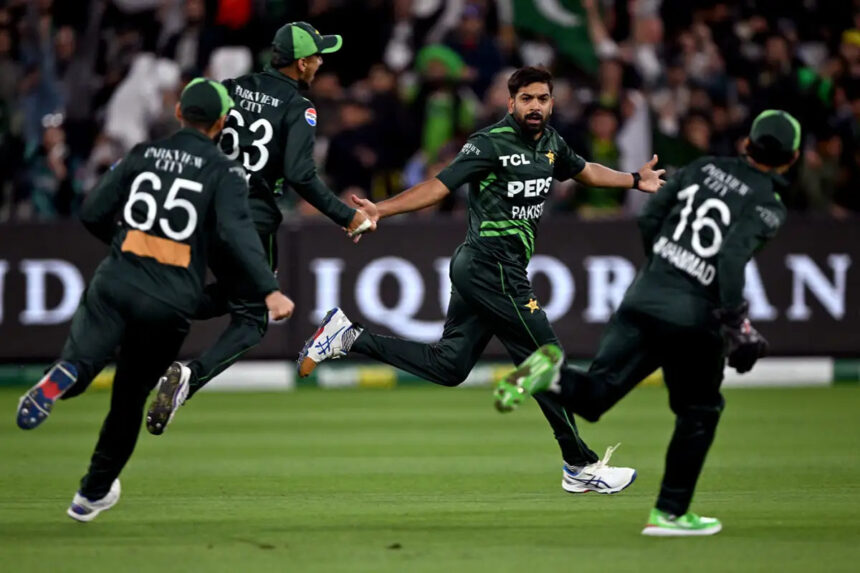The awards ceremony hadn’t started yet. Haris Rauf was hugging Glenn Maxwell, saying something to him. Their on-field rapport throughout the series hadn’t been the smoothest. It was pretty one-sided, actually!
Rauf bowled nine balls to Maxwell, and Maxwell got out three times. After that kind of record, there wasn’t much Maxwell could say other than a “Well done!” to Rauf.
When asked about his thoughts on Maxwell during the awards ceremony, Rauf straightforwardly admitted he was just lucky. That’s how he managed to dismiss such a destructive batsman three times in a single series. And as for Maxwell—well, it’s probably best not to make a big deal about him, at least in November. Given his heroics against Afghanistan last November in the World Cup, maybe it’s best to keep quiet about him every November! Anyway…
Even if luck played a part in Rauf’s success against Maxwell, he took seven more wickets throughout the series. How did he get those? In the first match, alongside Maxwell, he dismissed Steve Smith and Marnus Labuschagne. In the second game, he sent Labuschagne, Hardy, Inglis, and Cummins back to the pavilion. And today, he took down Short, with Maxwell in the mix again. Maybe luck was on his side with Maxwell, but the others? Those wickets were down to sheer pace, bounce, and precise line and length.
When talking about Rauf, pace and bounce always come to mind, along with line and length. In this Australia series, he skillfully combined all these elements, leading to instant results—he was the Player of the Series and the Man of the Match in both of Pakistan’s wins.
Rauf also owes some credit to his captain, Mohammad Rizwan. In the 2023 World Cup, Rauf bowled regularly in the power play, conceding an economy rate of 9.42 per over. Despite criticism, Babar Azam kept bowling him in the power play. Rizwan, however, didn’t use him there at all this series, and that decision paid off.
Even with his power-play struggles, Rauf’s World Cup performance wasn’t all bad. He took 16 wickets in nine matches with an economy rate of 6.74, although the rough power-play spells did impact his overall economy rate.
As a team, Pakistan didn’t do well, getting eliminated in the first round. The squad faced heavy criticism, and Rauf’s standing also took a hit, drawing criticism and controversies both on and off the field.
After the World Cup, the Pakistan Cricket Board (PCB) canceled Rauf’s central contract for refusing to play in the Australia Test series. Under pressure, he then wanted to play in the T20 World Cup, where Pakistan was knocked out in the first round, even losing to teams like the United States. Following that loss, Rauf faced ball-tampering allegations, and his performance was overshadowed by controversy.
Soon after the World Cup, Rauf made headlines when he got into a public altercation with an unknown individual, which turned into a heated exchange and even a physical confrontation. A video circulated on social media showing Rauf losing his temper, with his wife beside him trying to calm him down, as others stepped in to diffuse the situation.
While Rauf’s life was caught up in turmoil, Pakistan cricket was also in a state of upheaval. Coaches and captains came and went. But after defeating England at home and then winning a historic series in Australia, Pakistan cricket could finally breathe a sigh of relief, with Rauf playing a crucial role. His rough patch began before a series against Australia, and it finally ended with this series against Australia!
Then again, perhaps it’s wrong to say “it ended.” For cricketers, tough times come and go!






